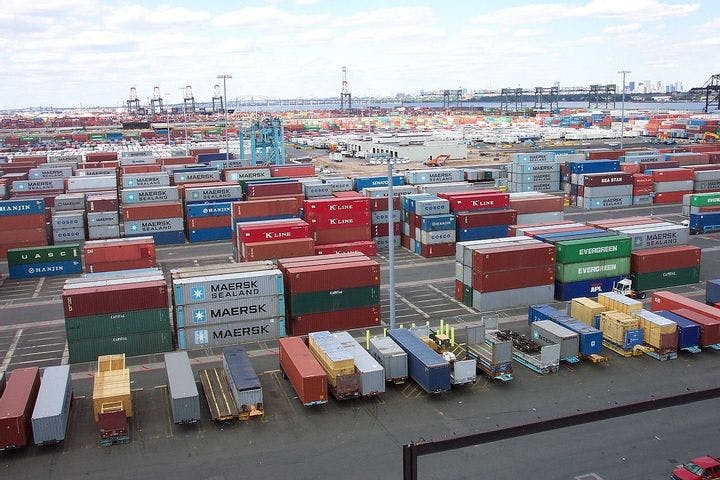Summer 2012
Frayed in the U.S.A.
– The Wilson Quarterly
Exports will resurrect America's economic might, but they won't improve Americans' incomes.
To those who fret about America’s economic future, have no fear: “Export success will resurrect the United States as a dominant global economic power,” declares Tyler Cowen, an economist at George Mason University (and a member of the WQ board of editorial advisers). The downside is that an export-led rebound will not improve the incomes of most Americans.
After wavering in the age of outsourcing, U.S. exports are now growing at a clip of 16 percent per year. Cowen is sanguine that the momentum won’t fade. The growing use of artificial intelligence and computing power in manufacturing portends good things for the United States. “The more the world relies on smart machines, the more domestic wage rates become irrelevant for export prowess,” he says. At the same time, the recent shale oil and natural gas discoveries on U.S. territory will supply domestic industry with fuel, create jobs, and provide a valuable export product. And as incomes improve in the developing world, the appetite for the higher-quality goods the United States exports—not to mention its energy—will grow.
An export-oriented America can expect a smoother ride internationally, Cowen believes. The trade imbalance with China will almost resolve itself thanks to greater Chinese demand for sophisticated American goods, economic integration with Latin America will increase, and a stronger economy will mean more money for American defense priorities.
On the domestic front, however, things won’t be nearly as copacetic. The wealthiest Americans will still earn lots of money—perhaps even more than the wealthiest Americans do now. But, the median wage in the United States will remain stagnant as global competition keeps pay low and new technologies shrink the need for unskilled labor. American manufacturing workers who used to command $21 to $32 an hour are going to have to make do with $12 to $19.
These developments will eventually produce a two-tiered economy much like what is seen today in many developing countries. “We will continue to cut a proverbial ‘deal with the devil,’ in which ever more jobs will be created in the relatively protected service sectors, while much of the economic dynamism will accrue to the capitalists, CEOs, and managers who dare to export,” Cowen writes. The tensions between export and protected service industries such as education and health care will likely exacerbate America’s fractious politics.
If there’s a silver lining, Cowen believes it’s that the prognosis for the poor and lower middle class is not as bleak as it might seem at first glance. The technology that is making labor more efficient is also revolutionizing other parts of the economy. The Internet will make higher education cheaper and more accessible, for one. All Americans will have the potential to have “positive experiences in their lives and lots of free and nearly free goods.” Even so, Cowen observes, “we may need one day to edit the Pledge of Allegiance to read: ‘Two sectors, under God, with liberty and justice for all, prosperity and dynamism for some.’ ”
THE SOURCE: “What Export-Oriented America Means” by Tyler Cowen. The American Interest, May–June 2012.
Photo courtesy of Wikimedia Commons
